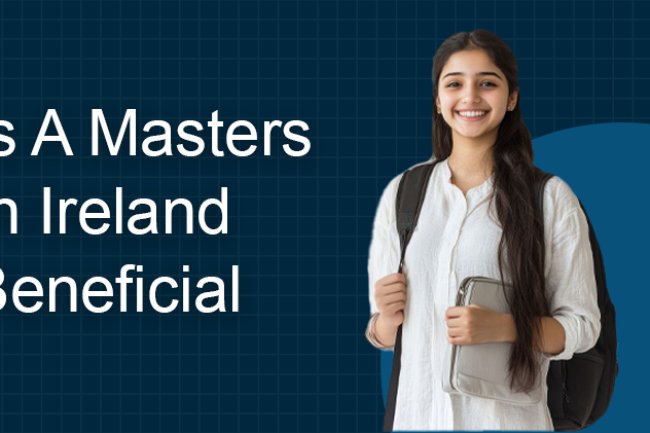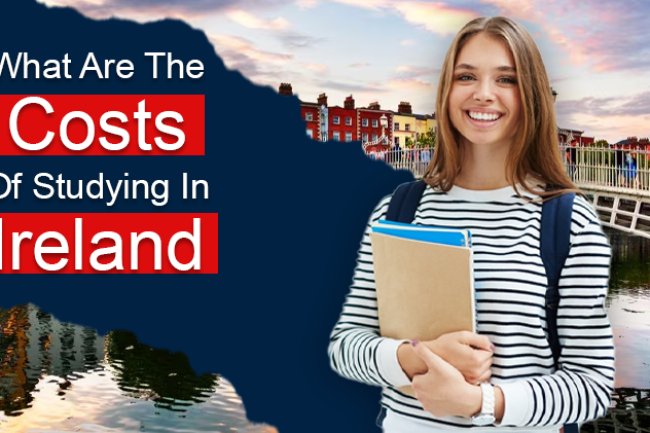Can I Work During Or After My Studies Study In Ireland
If you are looking for a study abroad destination that offers a wealth of culture and history, Study In Ireland is the perfect choice.

Currently, foreign students are not required to have a work visa in order to work in Ireland if they have been enrolled full-time for at least a year in a programme leading to a degree recognized by the Irish Department of Further and Higher Education, Research, Innovation, and Science.
Students who have obtained a valid immigration stamp 2 are only allowed to work 40 hours per week in the months of June, July, August, and September, as well as from December 15 through January 15, inclusively. Students who possess Immigration Permission Stamp 2 are only permitted to work 20 hours per week at all other times. The ability to work is terminated when the student's immigration Stamp 2 authorization expires.
Students enrolled in degree programmes can find temporary employment nearby:
- enrolled in a programme that is approved by the Minister for Education & Skills;
- registered with GNIB;
- attending a full-time programme of education at or above NFQ Level 7;
- putting in a minimum of 15 hours per week of daytime study;
- receiving instruction between the hours of 8am and 6pm for a minimum of 25 weeks per year;
- enrolled in a programme lasting at least one year;
If the above criteria are met and an international student wants to work in Ireland, they must get a Personal Public Services Number (PPS Number). Only PPS numbers can be used by employers to pay employees, and money is often only transferred to Irish bank accounts. The Universal Social Contribution (USC), Pay Related Social Insurance (PRSI), employment laws, and tax obligations must all be met by students.
Before you are formally recruited, it is typical to have a trial period. The hourly minimum wage in Ireland is €10.50.
Internship
Students who are enrolled in degree-granting courses are permitted to complete an internship if it is required for their course of study. These regulations apply to this.
- The internship or work placement component of the curriculum cannot last for more than 50% of the time allotted; for example, a 4-year programme would allow for two years of work placement. The employment cannot be a self-employed one as well.
- Academic programmes that include work placements must be an essential component of the overall programme and factor into the final award.
- Educational institutions must also make sure that the placements are appropriate for the chosen program.
Post-Study Pathways for International Students
After completing your education, it might be possible to remain in Ireland in order to apply for jobs under the Irish Third Level Graduate Scheme. This programme enables third-level graduates from non-EU countries who are currently residing legally in Ireland to remain there while looking for a job or applying for a green card or work permit.
- Students are permitted to work full-time during their authorized stay under the programme (40 hours a week).
- The Irish Third Level Graduate Scheme's authorization is nonrenewable.
Revised Third Level Graduate Scheme Permission
This permits non-EU/EEA graduates of Irish higher education institutions to work in Ireland for 24 months after they have graduated.
Graduates to be eligible:
1. The student must have received written notification from the appropriate awarding authority or institution on or after January 1, 2017, stating that they have earned the degree for which they had registered as a student.
2. Must submit an application within six months of receiving notification from the appropriate awarding body or institution that they have earned the award for which they had registered as a student. They must also possess a current Stamp 2 student immigration permission and an up-to-date immigration registration card.
3. They must not have already gone over the seven-year restriction on their permission to study in the State as a non-EEA national.
4. Subject to the overall maximum of eight years, a student who previously benefited from the Third Level Graduate Programme at a level 8 award or higher may re-enter the programme upon accomplishment of a higher level award, such as a level 9 award or above.
5. A graduate is only allowed to access the programme twice at a time, according to point 4) above.
6. Must obey the law, in keeping with the requirement for any non-EEA national wishing to renew their right to stay in the State. Such individuals should be of good moral character and should not have drawn the ire of the authorities in any way.
Also Read: Costs Of Studying In Ireland
7. Must show proof of receiving the final award in the form of a parchment or, in cases where the graduation ceremony has not yet occurred, an official letter from the awarding authority or institution attesting to the achievement of the award. We will follow up with plans for checking with the institutions, and additional information, including contact information, will be released when it is appropriate.
The seven Irish universities:
- Trinity College, UCD, DCU, Maynooth University, UCC, NUI Galway, and the University of Limerick.
- An award given by a recognized Irish awarding authority.
- Royal College of Surgeons of Ireland, Dublin Institute of Technology, Institutes of Technology, and Quality and Qualifications Ireland (QQI)
Persons qualifying for graduate immigration permission of up to twelve months. Graduates who received a National Framework of Qualifications award at Level 8 will be given a 12-month permission up to a total of seven years' student permission overall. (i.e., the total amount of time spent on Stamp 2 while a student and Stamp 1G while participating in this programme cannot exceed seven years).
Please note: Graduates who meet the requirements for the programme and hold an award at Level 9 or higher on the National Framework of Qualifications will initially be given authorization for twelve months. When the graduate demonstrates to the immigration authorities that he or she has taken the necessary efforts to acquire suitable graduate-level work, this will be extended for an additional period of twelve months (subject to the overall eight-year restriction) (e.g., attendance at job interviews, signing up with graduate employment agencies, etc.).
Can I switch to work permit employment when I am in Ireland to study?
The Department of Enterprise, Trade, and Employment authorizes employment.
NOTE: Students in language and non-degree programmes cannot use post-study pathways.
When should you submit your Third Level Graduate Scheme application?
Following the release of your results, you apply to the GNIB office. You must:
- Have a valid passport; have your IRP Card;
- Provide a letter from the institution or college you attended stating you have obtained your exam results and are entitled to graduate.
- Pay €300 by credit/debit card.
Immigration Arrangements for English Language Students
The usual immigration permission provided for the purposes of enrolling in an English language programme on the ILEP will be 8 months, as stated in the Government Policy Statement in May 2015. (This is a reduction from the 12-month permissions previously issued). This modification will be effective right away (i.e., starting on January 21, 2016) for all upcoming immigration registrations that are related to the English language (first time and renewals). Permissions that already exist won't be impacted.
Read Also: Study Abroad Consultant
The new policy has no effect on how the work concession operates. Students with a valid immigration stamp 2 since January 1, 2016, are allowed to work 40 hours a week in May, June, July, and August, as well as from December 15 through January 15, inclusively. They will only be permitted to work a maximum of 20 hours a week at all other times.
What's Your Reaction?





















